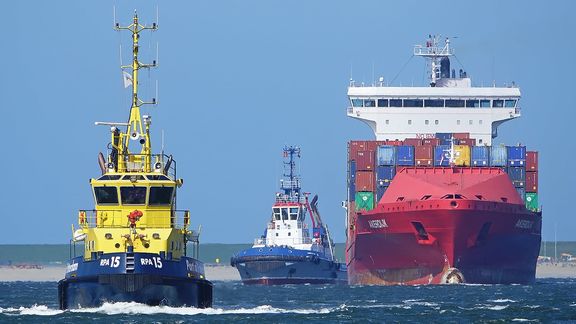Port of Rotterdam Authority and BigMile make transport emissions transparent with digital platform
Port of Rotterdam Authority and BigMile are developing a digital platform to identify transport-related emissions in the port. Data, including from AIS, a system that registers all vessel movements, is combined with a TNO calculation model, enabling a precise calculation of transport sector emissions.
The platform also provides insight into emissions at a business location, for example, and should also provide companies with more details on carbon and other emission levels in their total transport chain. The emission platform is helping the Port Authority and business community make choices en route to a carbon-neutral port.

So far, this concerns a pilot project to calculate seagoing and inland vessel movements in Rotterdam. Road and rail transport will be added at a later stage. The goal for the coming six months is to include emissions from supply chains en route to and leaving the port of Rotterdam in order to clarify transport emissions from door to door. The digital platform and knowledge gained are scheduled to be shared with shipping companies and terminals in the second half of 2022.
The platform is already proving useful in providing insight into such things as vessel emission levels when berthed at the quay; information that is useful in developing shore power projects. When berthed at the quay, vessels then switch off their generators and connect to shore power. The BigMile platform can clarify how much air pollution shore power connections prevent.
Millions of transport movements
‘With millions of transport movements, we are the largest port in Europe. This means that our activities can have a huge impact on making logistics more sustainable,’ stated Nico van Dooren, who is responsible for the Port of Rotterdam Authority’s energy transition programme. The Port Authority is working on a series of related projects to make industry and logistics more sustainable, from determining optimal connections via the most sustainable modality to the production of alternative fuels in Rotterdam and promoting fast and efficient port call handling.
With BigMile, the Port of Rotterdam Authority is taking a step towards using sound data to manage this reduction strategy. BigMile has developed a calculation and analysis platform to help shippers and logistics service providers optimise and report on the multi-modal transport-related carbon emissions of their transport. The SaaS platform, which already has over 200 users, enables shippers and logistics service providers to comply with the imminent carbon reporting requirements and impending carbon taxes.
First area emissions identified
‘In the first project phase, we are focusing on area emissions in the port of Rotterdam area, from 60 kilometres offshore to the Brienenoordbrug. We are literally ‘charting’ sea-going and inland shipping’s actual emissions based on vessel and vehicle movements,’ explained Wouter Nering Bögel, BigMile project manager.
‘These analyses enable us to use hard data to anticipate concrete improvement opportunities, and we are better able to assess the impact of measures in advance’, added Nico van Dooren. ‘The aim is to enable companies to manage carbon emission reduction in both the port and the entire supply chain that runs via Rotterdam.’